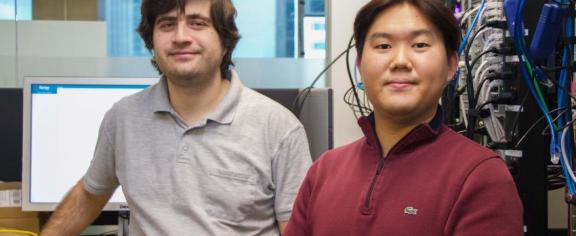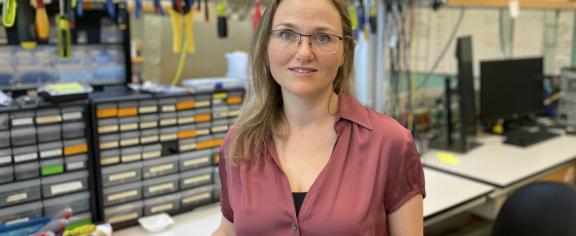2023-09-06
A new tool developed at Georgia Tech is proving to be highly effective against online malicious ads.
2023-11-20
Georgia Tech cybersecurity and privacy researchers have uncovered a significant threat that exploits a vulnerability in the Safari web browser
2023-11-29
The National Institute of Health (NIH) has awarded Yunan Luo a grant for more than $1.8 million to use artificial intelligence (AI) to advance protein research.
2023-09-28
School of Computational Science and Engineering (CSE) Assistant Professor Peng Chen is co-principal investigator of a $1.5 million National Science Foundation grant to develop the CRIS-HAZARD system.
2024-05-07
Method Provides Users Options When AI Rejects or Discriminates Against Them.
2024-05-09
Biomedical engineer Annabelle Singer has spent the past decade developing a noninvasive therapy for Alzheimer’s disease that also could benefit patients with a host of other neurological disorders, from epilepsy to multiple sclerosis.
2024-05-02
The researchers’ results have created a new resource for developing next-generation, ultra-sensitive quantum electronic devices.
2024-05-02
The new interdisciplinary Ph.D. in Neuroscience and Neurotechnology is expected to enroll its first graduate students in Fall 2025. Sciences will also offer a new Minor in Neuroscience, beginning Fall 2024.
2024-05-02
First phase of innovation district promises to encourage medical advances, drive economic growth, and inspire future generations
2024-04-30
Stroud joins nine newly appointed Fellows and ten ESA Early Career Fellows, elected for "advancing the science of ecology and showing promise for continuing contributions" in the field.








